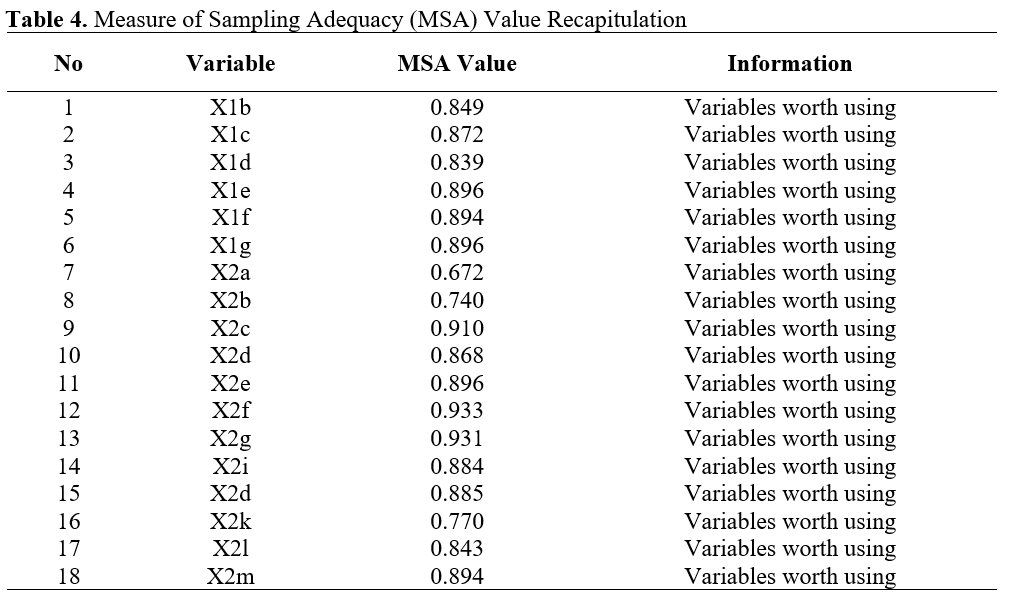Quality and Resilience of Subsidized Housing for Low-Income Communities in Disaster Prone Zone of Padang City: An Analysis of Residents' Perceptions
Main Article Content
Yuni Purnama Syafri
Fahma Furqani
Dyla Midya Octavia
Barkhia Yunas
Wiwin Putri Zayu
Background: Subsidized housing for Low-Income Communities (LIC) in Indonesia continues to encounter significant quality challenges, particularly in disaster-prone regions. These challenges are primarily associated with the limited enforcement of technical standards, insufficient infrastructure provision, and inadequate policy support, which collectively undermine the resilience and habitability of such housing.
Aims and Methods: This study analyzes the quality and resilience of subsidized housing for LIC in Padang City, which are in disaster-prone zones. Using questionnaire survey methods and factor analysis, this study identified technical and non-technical variables that affect the feasibility of housing. The KMO-Bartlett test, validity, and reliability ensured the instrument's feasibility, resulting in 18 valid variables grouped into four main factors: the quality of infrastructure, facilities, and public utilities (IFP), housing development policies and support, technical quality and housing standards, and residential accessibility.
Result: The study results show that basic infrastructure, regulatory support, implementation of technical standards, and strategic location have a significant role in the quality of subsidized housing. These findings confirm the importance of synergy between technical and policy aspects in improving the quality and resilience of subsidized housing, especially in disaster-risk areas.
Andalusia, & Murniwati, R. (2024, November). Fulfillment of infrastructure, facilities and public utilities of subsidized housing in Padang Pariaman. Journal of Law and Planning, 5(1).
Anggara, M. H., Juanita, J., & Novita Sari, C. A. (2020). Analisis tingkat kepuasan penghuni perumahan bersubsidi di Purwokerto. Surya Beton: Jurnal Ilmu Teknik Sipil, 8(1). https://doi.org/10.37729/suryabeton.v8i1.4095
Angriani, Y., & Syafri, Y. P. (2025, April). Community participation in the Self-Help Housing Stimulant Assistance (BSPS) program (Case study: Campago Ipuh and Campago Guguk Bulek Villages). Journal of Engineering Sciences, 2(3), 47–56.
Aprilia, K. S., Nurmayadi, D., & Hendardi, A. R. (2020). Evaluation of the availability of facilities in subsidized housing in Tasikmalaya City. Scientific Journal of Civil Engineering, 1(1).
Aurilia, A. P., Paramitha, D. D., & Nurhayati, R. (2023). Critical analysis of the subsidized housing program policy in Pekanbaru City. YUDABBIRU: Journal of State Administration, 5(1), 28.
Bramantyo, W. P., Tyas, A., & Argyantoro, A. (2019, May). Aspects of the quality of subsidized housing in the affordable housing program based on the perspective of the beneficiaries (case study: Mutiara Hati Semarang Subsidized Housing). Journal of Settlements, 14(1), 1–9.
Cahyaninghati, R., I Made Gde Sudharsana, & Kardinal, N. G. A. D. A. (2021). Evaluasi program rumah subsidi bagi masyarakat berpenghasilan rendah (MBR) di Kabupaten Buleleng. Jurnal ENMAP, 2(1), 21-26. https://doi.org/10.23887/em.v2i1.33262
Directorate of Evaluation of Housing Financing Assistance. (2017). Results of the monitoring and evaluation survey of housing financing assistance programs in January-August 2017. Jakarta.
Ministry of National Development Planning/Bappenas. (2020). National Medium-Term Development Plan (RPJMN) 2020-2024. Ministry of National Development Planning/Bappenas.
Perkim.Id. (2020). Settlement development patterns in West Sumatra Province.
Sarayar, F. O. O., Kumaat, R. J., & Maramis, M. T. B. (2022, September). The impact of the COVID-19 pandemic on home ownership loans (KPR) of housing financing liquidity facilities (FLPP) in Indonesia. Journal of Scientific Periodical Efficiency, 22(7).
Soewarno, A. A. (2022). Kinerja Lingkungan Rumah Subsidi di Indonesia: Studi Kasus Perumahan Kaba Residence Kendari. JUITEK: Jurnal Ilmu Teknik, 2(1). https://doi.org/10.17891/juitek.v2i1.279
Syafri, Y. P., Octavia, D. M., Furqani, F., Yunas, B., & Zayu, W. P. (2025, May 8–9). Quality subsidized housing: A literature review of technical and non-technical factors. Proceedings of the 9th Andalas Civil Engineering Conference: AI and Sustainable Infrastructure for Disaster Mitigation (pp. 563–570). Field.
Widiastomo, Y., (2024). Pengaruh kualitas rumah dan lingkungan terhadap kepuasan penghuni dan kecenderungan berpindah di Perumnas Bukit Sendangmulyo Semarang. Jurnal Pembangunan Wilayah dan Kota, 10(4). https://doi.org/10.14710/pwk.v10i4.8168
Yap, K. S. (2016). The enabling strategy and its discontent: Low-income housing policies and practices in Asia. Habitat International, 54, 166–172.
Yunas, B., Alius, M., & Syafri, Y. P. (2024, July). Analysis of the bending reinforcement of reinforced concrete beams with a layer of cement grouting on the pressure area using ATHENA software. Journal of Engineering Sciences, 1(4), 301–314.
Yunas, B., Octavia, D. M., Syafri, Y. P., Zayu, W. P., Furqoni, F., Ramadhi, R., & Ernawati, E. (2024). Structural design of a 10-story office building using the special moment frame system (SMFS) in Padang, West Sumatra. CIVED (Journal of Civil Engineering and Vocational Education), 11(3), 1041–1056.








